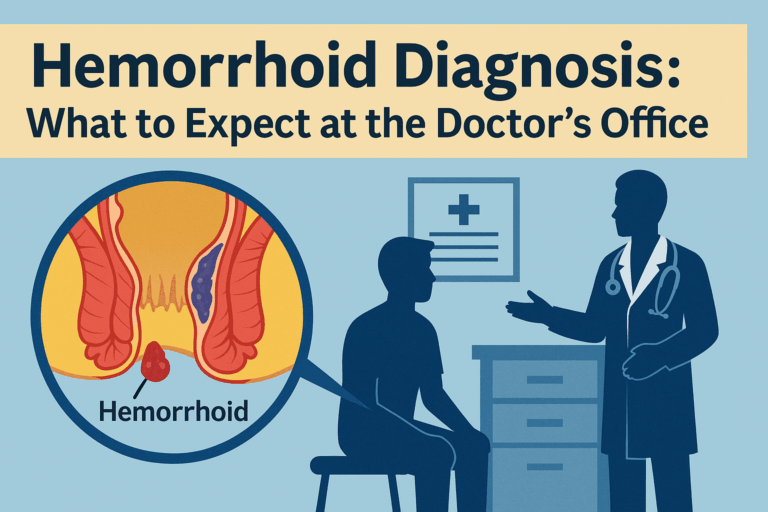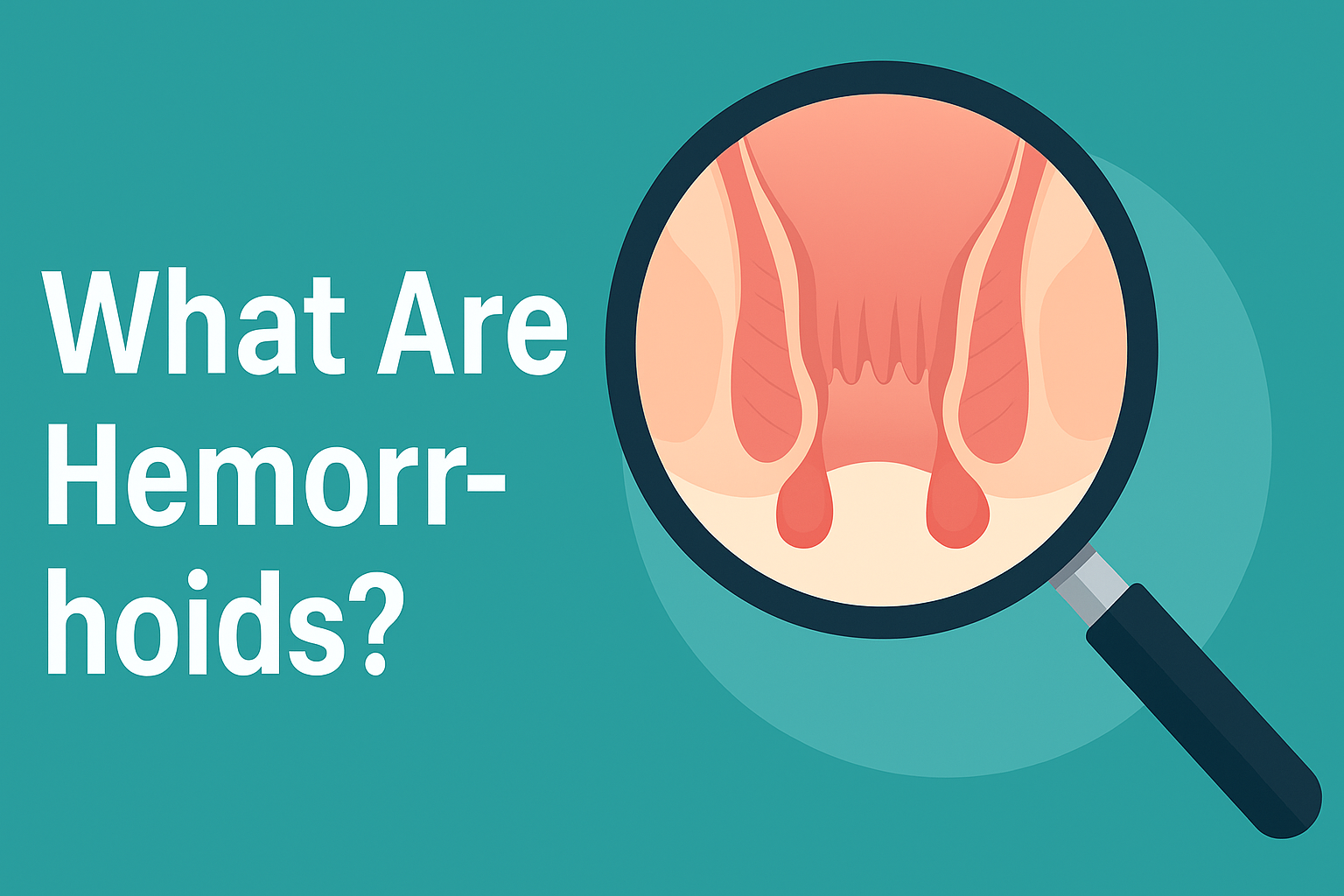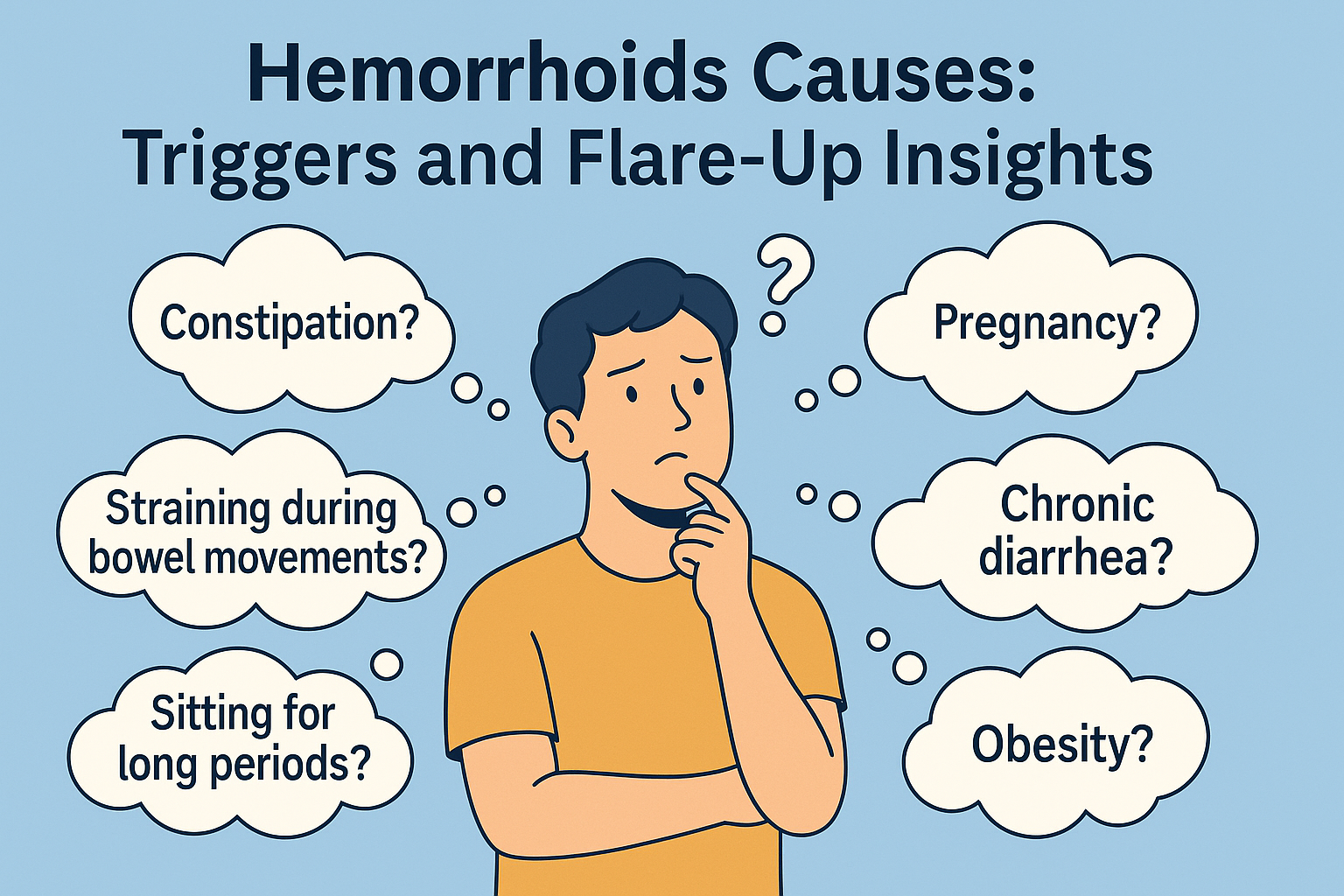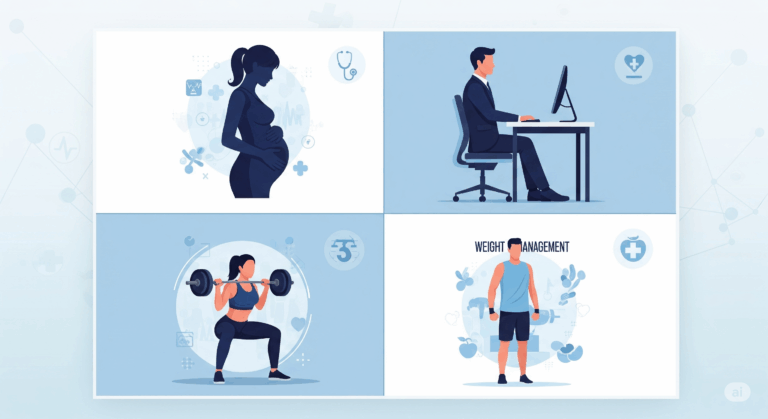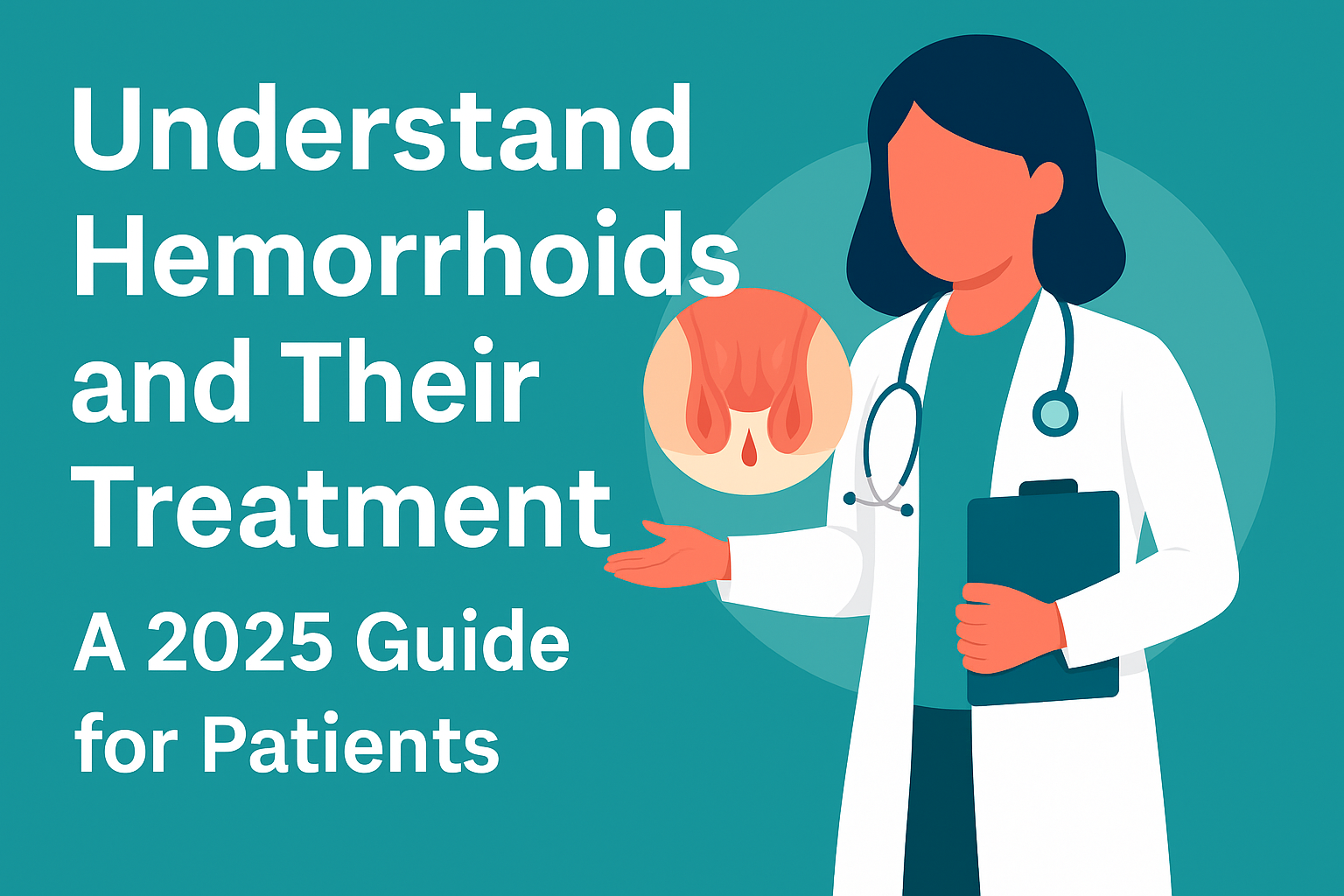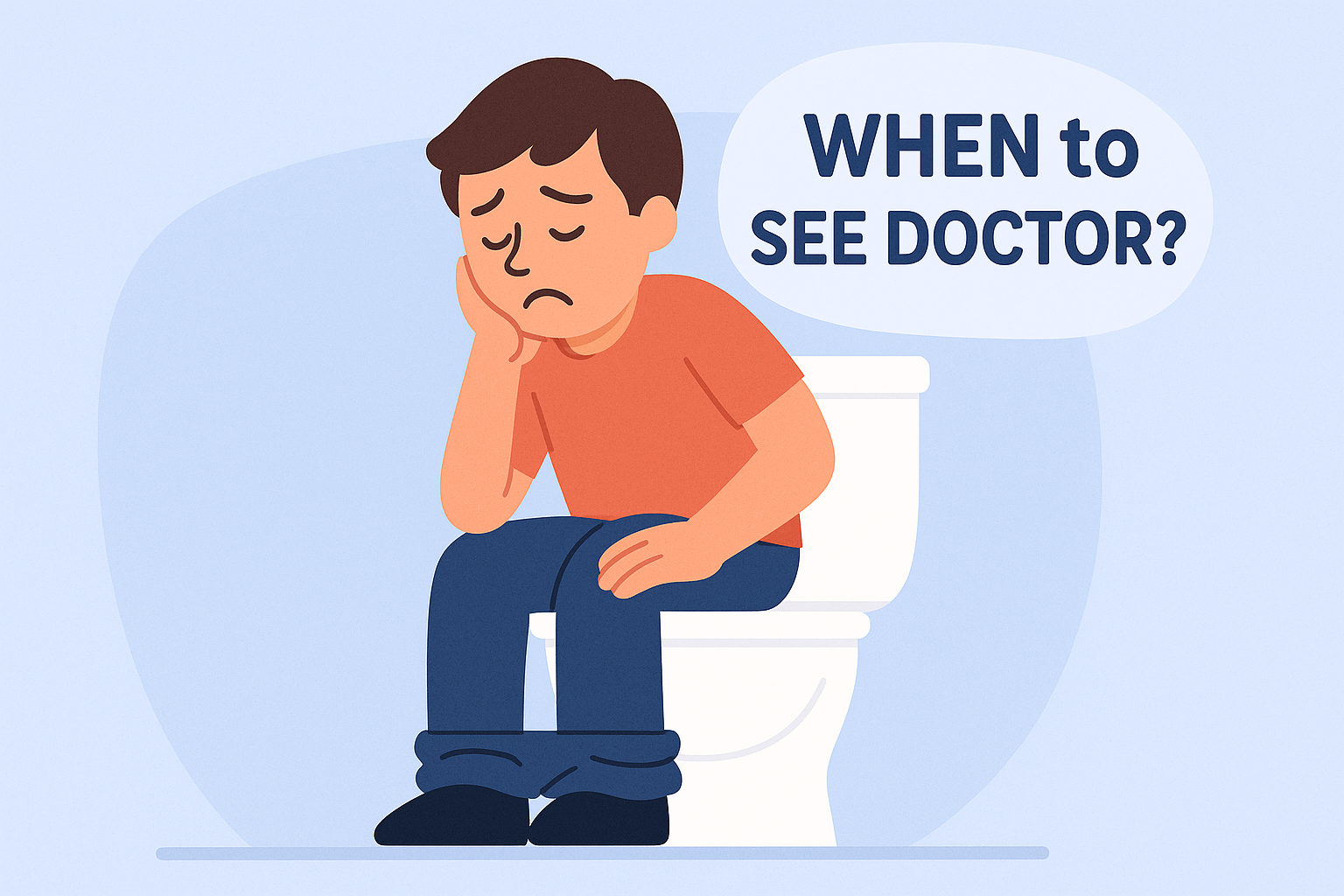
It’s easy to dismiss hemorrhoid symptoms as something you can just “deal with,” especially when they seem to come and go. But not all discomfort should be ignored. If you’re experiencing rectal bleeding that lasts more than a few days, significant pain while sitting or during bowel movements, or any changes in your symptoms that seem unusual or severe, it’s time to speak with a doctor. In rare cases, symptoms that look like hemorrhoids may be signs of something more serious, such as an anal fissure, hemorrhoids, or even colorectal cancer.
1. Differentiating Mild vs. Severe Symptoms
Understanding the difference between mild and severe symptoms of hemorrhoids and anal fissures is crucial for making informed decisions about seeking medical care. While many people experience hemorrhoids or anal fissures at some point in their lives, being able to distinguish between symptoms you can manage at home and those requiring professional attention can prevent complications and unnecessary suffering.
Hemorrhoids
Mild Symptoms (Usually Safe for Home Care):
- Small amounts of bright red blood on toilet paper
- Mild discomfort or itching
- Slight pain during bowel movements
- Small, soft lumps around the anus
- Symptoms improving within a few days
Severe Symptoms (Require Medical Attention):
- Heavy or persistent bleeding
- Severe pain interfering with daily activities
- External hemorrhoid that cannot be pushed back (thrombosed)
- Significant swelling in the anal area
- Symptoms accompanied by fever or general malaise
- Sudden, hard, painful lump (thrombosed hemorrhoid)
Anal Fissures
Mild Symptoms (Usually Safe for Home Care):
- Mild cutting pain during bowel movements
- Small amounts of bright red blood after defecation
- Mild discomfort in the anal area
- Improvement with home care within a few days
Severe Symptoms (Require Medical Attention):
- Intense tearing pain lasting for hours
- Fear of defecation leading to a cycle of constipation
- Chronic fissure (not healing after 8 weeks)
- Drainage of pus or foul odor
- Unbearable pain after bowel movements
- Anal sphincter spasms causing difficulty with defecation
2. When to Observe vs. When to Seek Help Immediately
Knowing when you can safely monitor your symptoms at home and when you need immediate medical intervention can save you from unnecessary complications. This section provides clear guidelines to help you make this critical decision based on your specific symptoms and risk factors.
When Observation and Home Care Are Appropriate:
- First occurrence of mild symptoms
- Minor bleeding only during bowel movements
- Pain manageable with over-the-counter medications
- Symptoms present for less than a week
- No fever or other systemic symptoms
- Signs of self-improvement in hemorrhoids or fissures
When to Seek Medical Help Immediately:
- Heavy or continuous rectal bleeding
- Symptoms accompanied by fever (above 100.4°F/38°C)
- Severe pain that cannot be managed at home
- Significant swelling or discoloration in the anal area
- Hemorrhoid that cannot be pushed back
- First occurrence of rectal bleeding if you’re over 40
- Family history of colorectal cancer
- Accompanying weight loss, fatigue, or anemia symptoms
- Compromised immune system (HIV patients, those undergoing chemotherapy or on immunosuppressants)
3. Handling Continuous Bleeding
Rectal bleeding is often the symptom that causes the most concern, and rightfully so. While small amounts of bright red blood on toilet paper might be manageable at home initially, persistent or increasing bleeding requires a structured approach to determine when medical intervention becomes necessary.
Bleeding for 1-3 Days:
- Continue home care measures
- Ensure adequate hydration
- Avoid spicy foods and alcohol
- Consider gentle aloe-containing wipes
- Document bleeding episodes (frequency, amount, color)
Bleeding for 4-7 Days:
- Contact your primary care physician for a regular appointment
- Evaluate the need for additional fiber supplements
- Consider over-the-counter topical hemostatic products
- Avoid medications that may increase bleeding (like aspirin)
- Limit heavy lifting and strenuous exercise
Bleeding Beyond 7 Days or Increasing in Volume:
- Seek urgent medical evaluation
- Endoscopic examination may be necessary
- Blood tests may be required to rule out anemia
- Specialist referral (gastroenterologist) may be needed
- Surgical treatment options may be discussed
Important Warning Signs:
- Dark red or black stools (may indicate upper GI bleeding)
- Large amounts of bright red blood
- Bleeding accompanied by dizziness, rapid heartbeat, or weakness
- Bleeding with severe abdominal pain
- Bleeding followed by fever
4. What to Expect During Your Doctor’s Initial Exam
Understanding what happens during a medical examination for hemorrhoids or anal fissures can help ease anxiety and prepare you for the appointment. While discussing such intimate health concerns might feel uncomfortable, knowing the standard procedures can help you feel more at ease and ensure you receive proper care.
Initial Assessment:
- Detailed history taking (symptom onset, duration, severity)
- Discussion of dietary habits, bowel patterns, and lifestyle
- Review of medical history and medication use
- Pain assessment (intensity and characteristics)
Physical Examination:
- Visual inspection: examining the outside of the anus for external hemorrhoids, skin tags, or visible fissures
- Digital rectal examination: assessing internal hemorrhoids, anal sphincter tone, and pain location
- Anoscopy: using a small instrument to examine the anal canal and lower rectum
- Side-lying or knee-chest position may be necessary for examination
Possible Advanced Tests:
- Sigmoidoscopy: examining the rectum and sigmoid colon
- Colonoscopy: for high-risk patients or to rule out other diseases
- Blood tests: to assess for anemia or infection
- Anorectal manometry: evaluating anal sphincter function (particularly for chronic fissures)
5. How to Describe Your Symptoms Clearly to Your Physician
Effective communication with your healthcare provider is essential for accurate diagnosis and appropriate treatment. Being prepared with specific details about your symptoms can significantly improve the quality of care you receive and help your doctor understand exactly what you’re experiencing.
Preparation:
- Keep a symptom diary (including onset, frequency, duration)
- Note pain intensity (using a 1-10 scale)
- Take photos of external lesions (if appropriate and feasible)
- List all home remedies tried and their effects
- Prepare a complete medication list (including OTC products and supplements)
Effective Communication:
- Use specific rather than vague descriptions (e.g., “bright red blood drops after bowel movements” rather than “some bleeding”)
- Describe pain characteristics (e.g., burning, stabbing, dull ache, throbbing)
- Explain the relationship of symptoms to bowel movements (before, during, or after)
- Describe any triggering or relieving factors
- Be honest about bowel habits and frequency changes
Key Questions to Ask Your Doctor:
- “How long should it take for this problem to improve?”
- “What lifestyle changes should I make to prevent recurrence?”
- “When should I come back for a follow-up?”
- “What warning signs should I watch for?”
- “What are the benefits and risks of the treatment options?”
- “How likely is this condition to recur?”
Conclusion
While hemorrhoids and anal fissures are common and typically not serious, never ignore persistent or severe symptoms. Understanding when to seek medical help is essential for avoiding complications and receiving appropriate treatment. Remember that rectal bleeding, severe pain, or any significant change in your symptoms warrants medical attention, especially if you’re over 40 or have risk factors for colorectal issues. By recognizing warning signs and seeking timely medical care, you can effectively manage these conditions and prevent more serious health problems.
Reference
- Mayo Clinic. “Anal fissure – Symptoms and causes.” (2023). https://www.mayoclinic.org/diseases-conditions/anal-fissure/symptoms-causes/syc-20351424
- Cleveland Clinic. “Hemorrhoids: Causes, Symptoms, Treatments & Prevention.” (2024). https://my.clevelandclinic.org/health/diseases/15120-hemorrhoids
- Johns Hopkins Medicine. “Hemorrhoids.” (2023). https://www.hopkinsmedicine.org/health/conditions-and-diseases/hemorrhoids


